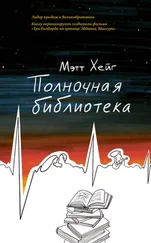Мэтт Хейг - How to Stop Time
Здесь есть возможность читать онлайн «Мэтт Хейг - How to Stop Time» весь текст электронной книги совершенно бесплатно (целиком полную версию без сокращений). В некоторых случаях можно слушать аудио, скачать через торрент в формате fb2 и присутствует краткое содержание. Год выпуска: 2017, Издательство: Canongate Books, Жанр: Современная проза, на английском языке. Описание произведения, (предисловие) а так же отзывы посетителей доступны на портале библиотеки ЛибКат.
- Название:How to Stop Time
- Автор:
- Издательство:Canongate Books
- Жанр:
- Год:2017
- ISBN:нет данных
- Рейтинг книги:4 / 5. Голосов: 2
-
Избранное:Добавить в избранное
- Отзывы:
-
Ваша оценка:
- 80
- 1
- 2
- 3
- 4
- 5
How to Stop Time: краткое содержание, описание и аннотация
Предлагаем к чтению аннотацию, описание, краткое содержание или предисловие (зависит от того, что написал сам автор книги «How to Stop Time»). Если вы не нашли необходимую информацию о книге — напишите в комментариях, мы постараемся отыскать её.
How to Stop Time — читать онлайн бесплатно полную книгу (весь текст) целиком
Ниже представлен текст книги, разбитый по страницам. Система сохранения места последней прочитанной страницы, позволяет с удобством читать онлайн бесплатно книгу «How to Stop Time», без необходимости каждый раз заново искать на чём Вы остановились. Поставьте закладку, и сможете в любой момент перейти на страницу, на которой закончили чтение.
Интервал:
Закладка:
‘I don’t know, sir. He died when I was young. He was killed at war. In France.’
‘The Catholics?’
‘The Catholics.’
‘So you came to England?’
I obviously didn’t want to be talking about myself, but Shakespeare seemed to want to do exactly that, and if I was going to ask him for a favour, then I had no choice but to oblige.
‘We did, yes. Myself and my mother. To Suffolk.’
‘And did you not like the country air, Tom?’
‘It was not the air that was the problem.’
‘The people?’
‘There were all manner of things.’
He sipped, he smoked, he studied. ‘You possess a young face and a wise tongue. People hate that. They know it could fool them.’
I was worried, felt for a moment like he was testing me. Remembered the conversation with Christopher and Hal.
‘Do you know of the Queen’s Men?’ he asked.
‘The troupe of players?’
‘That is them. Yes. Well, this man joined them. Henry Hemmings. He had been in some other player companies before, and when people turned suspicious that he was not at time’s mercy, he moved to a new company. It gives reason, I would suppose. But by the time he reached the Queen’s Men the whispers were flying like sparrows. One of the actors recognised him, from north of ten years before, and a fight broke out. The most vicious fight anyone watching had ever witnessed. At the town of Thame, in the county of Oxfordshire. By the end, two more of the troupe were at him, like dogs at a rabbit.’ He rested his pipe carefully on the table, the smoke twisting a thin line directly to the ceiling.
‘Were you there?’ I asked.
He shook his head. ‘I never knew him. Yet I have to thank him.’
‘For?’
He smiled, a life-weary smile. ‘His death. He died and the Queen’s Men had lost one of their key players. So when they came to Stratford I saw their predicament and my opportunity. I asked to join them. I drank with them. We spoke a little on general matters. We spoke of Plutarch and Robin Hood. And then chance blessed me. I became a Queen’s Man. And that led me to London.’
‘I see.’
He sighed. ‘Yet it was in truth an ominous beginning. Though I had no part in his death, the shadow of Hemmings passes over me quite often. And I often feel as though I am, even now, in a place that is not mine. That it happened unjustly. They were a violent and amoral rag-tag band of brothers. Killers. Twelve Wolstan the Trees. And Henry Hemmings had committed no crime, except being different. He had a face that didn’t age. That was my beginning – the rotten acorn of it all.’
He looked quite fragile for a moment, then scratched at his beard, and picked up his pipe again. Inhaled and closed his eyes. Blew the smoke over his left shoulder as I sipped my ale.
‘The acorn wasn’t rotten,’ I said.
‘Ah, yet the tree is twisted. But there is no moral to this tale, except with mirth and laughter let wrinkles come.’ I didn’t know for sure if he thought of me as another Henry Hemmings. Nor did I know for sure if Henry Hemmings actually had been like me, or if he was someone who was blessed and cursed with a more youthful disposition than average. I didn’t know if Shakespeare knew the story of what had happened in Edwardstone, and whether, possibly, my Suffolk connection had made a link in his mind. Yet I sensed a kind of warning, a friendly one, in his words. ‘So, why did you want to see me?’
I took a breath.
‘I know two sisters, Grace and Rose, and they need work. They need it urgently . . . They could sell apples.’
‘I have no say over the pippin-hawks.’
He shook his head. Seemed irritated that I would burden his great mind with such an irksome triviality.
‘Please, talk to me of something else, or leave me.’
I thought of Rose’s worried face. ‘I am sorry, sir. I owe these girls a great debt. They took me into their home at a time when I had no one. Please, sir.’
Shakespeare sighed. I felt like I was baiting a bear, and feared what he was going to say next. ‘And who is Rose? You spoke her name soft when you said it.’
‘She is my love.’
‘Oh dear. A serious love?’
He pointed over at Elsa and another worker from the Cardinal’s Hat, who often touted for trade in the tavern. Elsa was holding a gentleman’s groin under a table, her thumb caressing the bulge. ‘Look at the man she hangs on. Is that the kind of love you feel?’
‘No. Well, yes. But the other kind too.’
Shakespeare nodded. His eye glimmered with a tear. Maybe it was the smoke. ‘I will have a word. You can tell these girls they can sell their apples.’
And so they did.
And all was sweet and light, though every time I heard Jaques’ soliloquy I worried. I, more than most, was an actor in life. I was playing a part. What would my next role be, and when would I have to take it? How would I be able to leave this one behind, and when it would mean leaving Rose?
The night I told Rose that she and Grace could work at the Globe because ‘Mr Shakespeare made it so’ was a happy one, and I had bought a pack of cards on the way home. We sat all night laughing and singing and playing triumph and eating pies from Old Street and drinking more ale than usual.
Conversation turned to how Grace was looking more like a woman, and then Grace said to me, not in a rude way but in the straight-as-an-arrow truthful way that was the essence of Grace, ‘I will pass you by soon.’
And she laughed, because she had drank too much ale. She was used to drinking it, just not four jugs of it in a row.
But Rose didn’t laugh. ‘It is true. You haven’t aged a day.’
‘It is because I am happy,’ I said weakly. ‘I have no worries to line my face.’
Though of course the reality was that I had a sea of them, but it would be decades before a single line appeared.
I used to watch Rose, between the musical interludes, and she used to observe me too, in the gallery. What was it about those silent exchanges in a crowded place? There was a magic to them, like a secret shared.
The crowds, however, seemed to be getting rowdier as the season went on. On opening night – with the queen and her court in attendance – there hadn’t been a single scuffle. Towards the season’s end, there was always, at any time, some skirmish going on amid the groundlings in the pit. Once, for instance, a man sliced another man’s ear off with an oyster shell over one of the prostitutes who was always there. I worried about the girls being down there while I was safely up in the rarefied air of the gallery but generally they were all right, and enjoyed selling four times as much fruit as they would have sold at Whitechapel Market.
But then, one afternoon, under a sky full of stone-grey rain clouds: trouble.
I was midway through the tune of ‘What Shall He Have That Killed the Deer?’ – which by now, as with all the songs in the play, I could pretty much pluck my way through in my sleep – when I noticed something. Someone – a mean-looking saggy-lipped man from the benches – had stolen a pippin from Grace and was biting into it as she asked him for the penny it cost. He tried to bat her away like a fly, but Grace was Grace so she stood her ground. She was shouting words I couldn’t hear, but knowing Grace I could guess them. As she was standing in the way of another man, she was now getting into broader bother. This man – a grizzled brown-toothed brute in ale-soaked clothes – pushed Grace to the floor, sending her apples flying to the ground amid the sand and the nut and oyster shells, triggering a memory of all those scattered plums on Fairfield Road. Then it was a free for all, as several people jostled to grab the apples.
Grace got to her feet, and the first man, the apple thief, then grabbed her and made a gargoyle of his face, shoving his tongue in her ear.
Читать дальшеИнтервал:
Закладка:
Похожие книги на «How to Stop Time»
Представляем Вашему вниманию похожие книги на «How to Stop Time» списком для выбора. Мы отобрали схожую по названию и смыслу литературу в надежде предоставить читателям больше вариантов отыскать новые, интересные, ещё непрочитанные произведения.
Обсуждение, отзывы о книге «How to Stop Time» и просто собственные мнения читателей. Оставьте ваши комментарии, напишите, что Вы думаете о произведении, его смысле или главных героях. Укажите что конкретно понравилось, а что нет, и почему Вы так считаете.
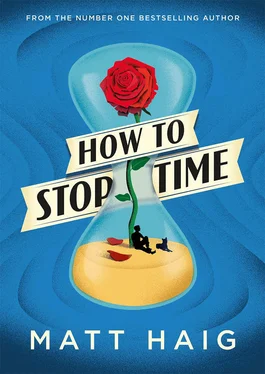
![Мэтт Хейг - Влюбиться в жизнь [Как научиться жить снова, когда ты почти уничтожен депрессией]](/books/28868/mett-hejg-vlyubitsya-v-zhizn-kak-nauchitsya-zhit-sn-thumb.webp)
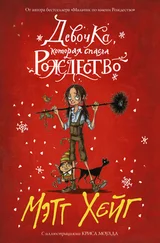
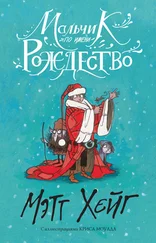
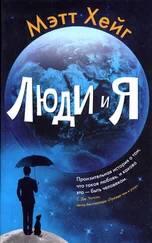

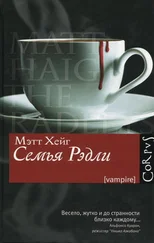
![Мэтт Хейг - Полночная библиотека [litres]](/books/388474/mett-hejg-polnochnaya-biblioteka-litres-thumb.webp)
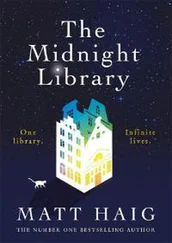
![Мэтт Хейг - Клуб призрачных отцов [litres]](/books/392121/mett-hejg-klub-prizrachnyh-otcov-litres-thumb.webp)

![Мэтт Хейг - Отец Рождество и Я [litres]](/books/421076/mett-hejg-otec-rozhdestvo-i-ya-litres-thumb.webp)
